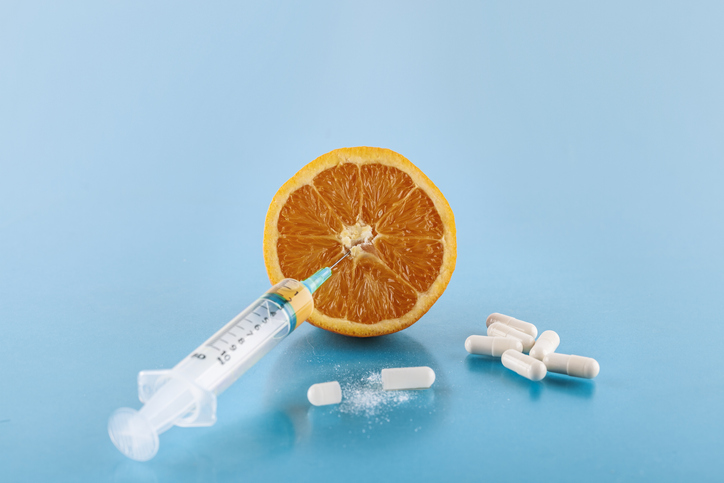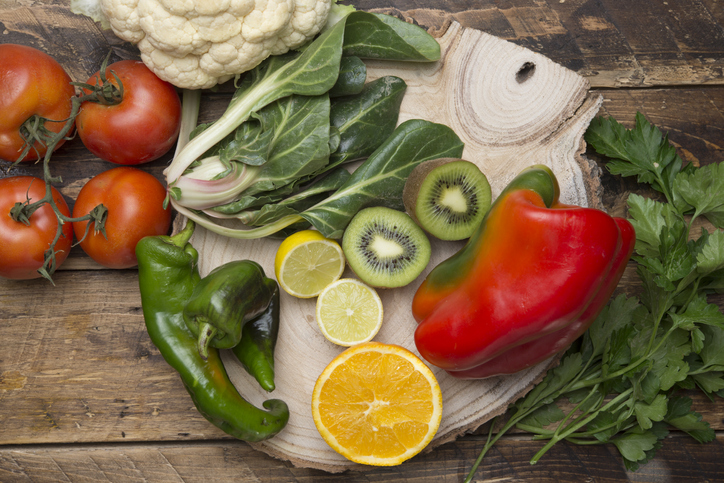Another One To Add To The Coronavirus Arsenal: Vitamin C

It seems like everyone is getting the coronavirus. It was recently announced that Prince Charles, 71, tested positive for COVID-19. This virus does not care about race, gender, age, and economic or social status. We are all in this fight together.
And one of the ways we can fight is by doing everything we can to make our immune systems strong. This system plays such an important role in protecting us from viruses and other pathogens.
Your immune system is made up of various organs, cells and proteins. For example, the liver, tonsils, adenoids, appendix, spleen, thymus, bone marrow and white blood cells are usually considered part of your immune system.
Think of your white blood cells as your “immune system cells.” You want to have the optimal number of these cells to ensure you are in the best position to combat viruses and infections.

One of the ways to ensure that your white blood cells are protected is by getting the right amount of nutrients from the foods (and possibly supplements) you consume.
There are six groups of nutrients we all need to live and protect our immune systems: water, carbohydrates, fats, vitamins, minerals and protein. And these nutrients have to be in the right balance.
Most of us have no problem getting sufficient water, protein, fats and carbohydrates, however, vitamins and minerals tend to be the nutrient groups where many people have deficiencies.
According to the Center for Disease Control’s nutrition report, 10 percent of the U.S. population has nutritional deficiencies. And vitamin C is one of the nutrients many people are not getting enough of.
I don’t play favorites with my nutrients because they are all equally important, however, vitamin C is a nutrient I am particularly aware of at all times. Perhaps this is because I have difficulty absorbing it from food.
As humans, we cannot synthesize vitamin C. So we need to get 90 percent of our vitamin C intake from fruits and vegetables, according to one source.
People who don’t get enough vitamin C in their diets may get scurvy. You may have heard that sailors on long voyages in the 17th and 18th centuries died from scurvy when they ran out of fresh food supplies.
Scurvy may not be as common these days, but it can still happen. And it has been reported that more than 40% of American adults have an inadequate intake of vitamin C. While the deficiency may not result in bleeding gums and missing teeth, it might be enough to wreak havoc on our immune systems. Vitamin C also plays a role in protecting us from cardiovascular illnesses and other diseases.
Of course, we want to avoid this deficiency so that our immune systems can be in top shape and the most capable of fighting COVID-19.
It is one of the most important nutrients needed for our survival. It is also an antioxidant, which means it protects our bodies from free radicals and other harmful molecules. There are even reports that chinese researchers are adding vitamin C to the list of potential therapies for COVAD-19.
According to one report, "ZhiYong Peng, MD of the Department of Critical Care Medicine at Zhongnan Hospital of Wuhan University recently registered a phase 2 clinical trial on ClinicalTrials.gov to test the efficacy of vitamin C infusions for the treatment of severe acute respiratory infection (SARI) associated with the novel coronavirus."
Vitamin C was described in the study as an antioxidant "that may help prevent cytokine-induced damage to the lungs. Cytokines are small proteins released by cells, which trigger inflammation and respond to infections, according to MedicineNet author William C. Shiel Jr., MD, FACP, FACR. Severe lung inflammation with COVID-19 may result in respiratory distress and even death."
It is well known that vitamin C "reduces the inflammatory response, and both prevents and shortens the duration of the common cold." Moreover, "insufficient vitamin C is related to an increased risk and severity of influenza infections."
To put into perspective what a key nutrient vitamin C is, in New York, one of the epicenters of the coronavirus in the United States, some hospitals give “seriously sick” coronavirus patients “massive doses of vitamin C,” according to one report.
A doctor mentioned in the report says that COVID-19 patients in intensive care get 1,500 milligrams of intravenous vitamin C. (To learn more about IV vitamin therapy, read here).
This dose is 16 times higher than the National Institute of Health’s daily recommended dietary allowance of vitamin C.
“The patients who received vitamin C did significantly better than those who did not get vitamin C,” said the doctor.
“It helps a tremendous amount, but it is not highlighted because it’s not a sexy drug.”
To be clear, this does not mean that vitamin C will completely prevent or cure COVID-19. This is evidence however to suggest that this vitamin may help to reduce the effects of viruses like coronavirus.
“Vitamin C contributes to immune defense by supporting and directly stimulating various cellular functions of both the innate and adaptive immune system,” according to a study on the influenza virus and vitamin C.
“Vitamin C (ascorbic acid) possesses anti-viral activity. It has been shown that vitamin C is an essential factor in the production of the anti-viral immune response during the early phase of viral infection…”
“Anti-viral” is the magic word here for me. Given this pandemic we are facing, anything with potential anti-viral properties is definitely worth knowing about.
It is not advised to take any supplements or higher doses of vitamin C without first seeking the advice of a competent healthcare professional. For example, there are a significant number of people with certain genetic conditions like G6PD or kidney issues who should avoid too much vitamin C.
In the meantime, you can eat plenty of vitamin C rich foods such as broccoli, cantaloupe, cauliflower, kale, kiwi, oranges, papaya, red, green or yellow bell peppers, sweet potatoes, strawberries and tomatoes (just to name a few).
If you are a smoker, now is definitely the time to quit! Smoking inflames the lungs and suppresses the immune system. So taking vitamin C and smoking may be counterproductive.
Stay safe and healthy.
Enjoy your healthy life!
The pH professional health care team includes recognized experts from a variety of health care and related disciplines, including physicians, attorneys, nutritionists, nurses and certified fitness instructors. This team also includes the members of the pH Medical Advisory Board, which constantly monitors all pH programs, products and services. To learn more about the pH Medical Advisory Board, click here.







